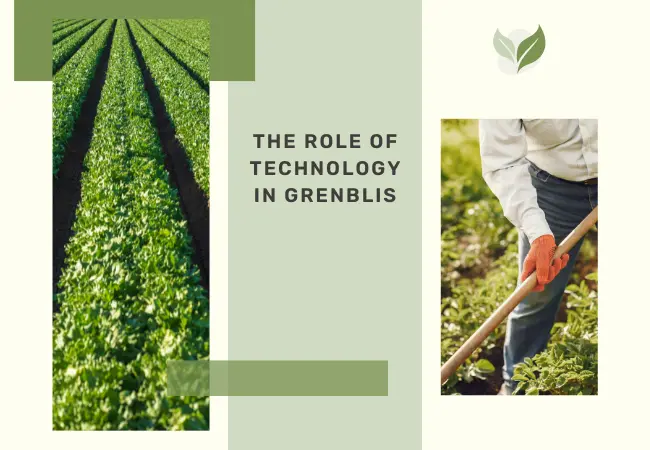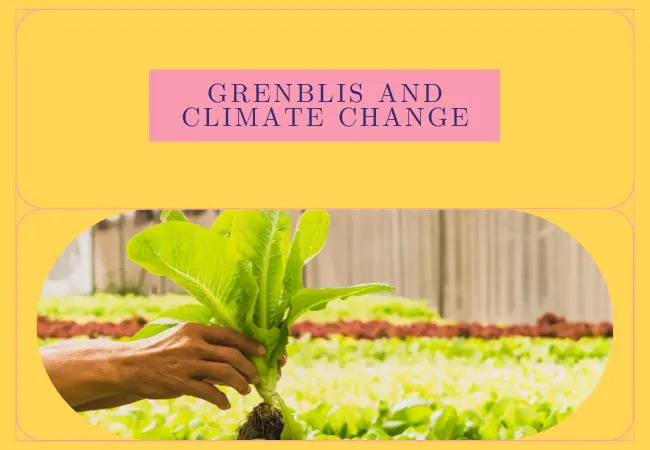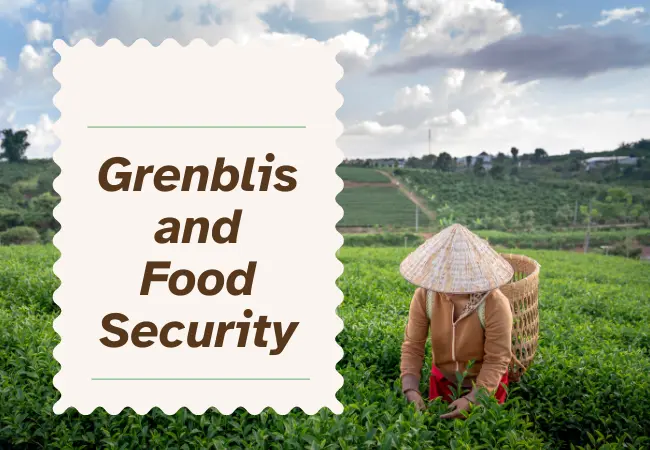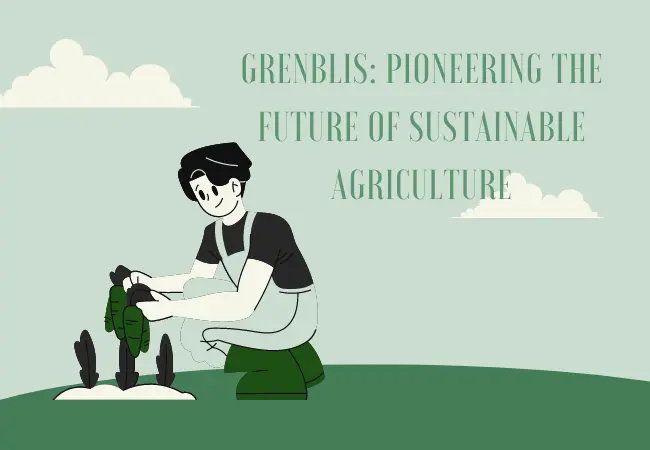Introduction
The global demand for food is rising, yet traditional farming practices are increasingly challenged by environmental concerns, resource limitations, and the pressing need for sustainability. As the world grapples with the impact of climate change, the agricultural sector is under immense pressure to adapt and innovate. a forward-thinking company at the forefront of sustainable agriculture. Grenblis is not just another agricultural firm; it’s a visionary leader dedicated to revolutionizing farming practices through sustainable, eco-friendly solutions.
In this article, we’ll explore the mission, innovations, and impact, examining how this company is shaping the future of agriculture by prioritizing environmental health, resource efficiency, and food security. We’ll delve into the technologies employed, its approach to sustainability, and why it’s becoming a beacon for the future of farming.
| Heading | Sub-Topics |
|---|---|
| Introduction | The need for sustainable agriculture and Grenblis’ role |
| What is Grenblis? | Overview of the company and its mission |
| Key Innovations by Grenblis | Exploring the technologies and practices Grenblis is pioneering |
| Sustainable Farming Practices | How Grenblis promotes eco-friendly agriculture |
| The Role of Technology in Grenblis | Leveraging advanced tech for smarter farming |
| Water Conservation and Management | Grenblis’ strategies for efficient water use |
| Soil Health and Fertility | Innovative approaches to maintaining and improving soil quality |
| Grenblis and Climate Change | How the company is addressing the challenges of climate change in agriculture |
| Organic Farming and Grenblis | Commitment to organic practices and reducing chemical use |
| Grenblis’ Impact on Biodiversity | Promoting biodiversity through sustainable farming |
| Community Engagement and Education | Grenblis’ initiatives to involve and educate local communities |
| Grenblis and Food Security | Contributing to global food security through sustainable practices |
| Partnerships and Collaborations | Working with other organizations to enhance sustainability efforts |
| Grenblis’ Global Reach | Expanding sustainable agriculture practices worldwide |
| The Economic Benefits of Grenblis’ Approach | How sustainable farming can be profitable and beneficial for farmers |
| Certifications and Standards | Ensuring compliance with global sustainability standards |
| Success Stories and Case Studies | Real-world examples of Grenblis’ impact on farming communities |
| Grenblis’ Vision for the Future | Looking ahead: the future of agriculture according to Grenblis |
| Frequently Asked Questions about Grenblis | Addressing common queries about the company and its practices |
| Conclusion | Recap of Grenblis’ role in advancing sustainable agriculture |
What is Grenblis?
Grenblis is an innovative agricultural company committed to advancing sustainable farming practices. Founded on environmental stewardship, resource conservation, and community engagement principles, Grenblis aims to transform the agricultural sector by providing farmers with the tools, knowledge, and support needed to adopt eco-friendly practices.
Grenblis’ mission is to create a more sustainable and resilient food system that meets the needs of today’s population and preserves resources for future generations. By integrating cutting-edge technology with traditional farming wisdom, Grenblis is helping farmers worldwide cultivate crops more efficiently, sustainably, and profitably.
Key Innovations by Grenblis
Grenblis is at the forefront of agricultural innovation, developing and implementing technologies that make farming more sustainable and efficient. Some of the critical innovations pioneered by Grenblis include:
- Precision Agriculture Tools: Utilizing GPS, IoT, and AI to optimize planting, watering, and harvesting, reducing waste and maximizing yields.
- Drought-Resistant Crop Varieties: Developing and promoting crops requiring less water and more resilient to changing climate conditions.
- Organic Fertilizers and Biopesticides: Creating eco-friendly alternatives to chemical fertilizers and pesticides, promoting soil health and reducing environmental impact.
- Smart Irrigation Systems: Implementing advanced irrigation technologies that minimize water usage while ensuring optimal crop hydration.
- Renewable Energy Integration: Incorporating solar and wind energy into farming operations to reduce carbon footprints and energy costs.
These innovations enhance productivity and align with Grenblis’ commitment to sustainability and environmental responsibility.
Sustainable Farming Practices
At the heart of Grenblis is a dedication to sustainable farming. The company advocates for practices that conserve resources, protect ecosystems, and enhance the resilience of farming operations. Some of the sustainable practices promoted by Grenblis include:
- Crop Rotation and Diversity: Implementing diverse crop rotations improves soil health, reduces pest pressure, and enhances biodiversity.
- No-Till and Reduced Tillage Farming: Minimizing soil disturbance to preserve soil structure, increase organic matter, and reduce erosion.
- Integrated Pest Management (IPM): Using biological, cultural, and mechanical methods to control pests with minimal environmental impact.
- Agroforestry: Integrating trees and shrubs into farming systems to improve soil quality, provide habitat for wildlife, and sequester carbon.
By promoting these practices, Grenblis helps farmers reduce their environmental impact while maintaining or even increasing their productivity.
The Role of Technology in Grenblis

Grenblis leverages advanced technology to enhance the efficiency and sustainability of farming practices. From precision agriculture to smart irrigation, technology is central to Grenblis’ approach. Here’s how:
- Precision Agriculture: By using data from satellites, drones, and ground sensors, helps farmers make informed decisions about planting, fertilizing, and harvesting, optimizing every aspect of the farming process.
- Artificial Intelligence (AI): AI-powered tools analyze vast amounts of data to provide farmers with actionable insights, such as predicting crop yields, identifying disease outbreaks, and suggesting optimal planting times.
- Internet of Things (IoT): Connected devices monitor environmental conditions in real time, allowing for precise adjustments to irrigation, fertilization, and other farming activities.
- Big Data Analytics: Grenblis uses big data to identify trends, forecast outcomes, and tailor farming practices to specific conditions, enhancing both sustainability and profitability.
Integrating these technologies into farming operations, enables more efficient resource use, higher yields, and reduced environmental impact.
you may also like to read:
Unlock Your Fitness Potential with Kingymab: The Future of Performance Enhancement
Water Conservation and Management
Water is a critical resource in agriculture, and Grenblis places a strong emphasis on water conservation and efficient management. The company’s approach includes:
- Smart Irrigation Systems: promotes the use of drip irrigation, which delivers water directly to plant roots, minimizing evaporation and runoff.
- Rainwater Harvesting: Encouraging the collection and storage of rainwater for irrigation purposes, reducing reliance on groundwater and surface water sources.
- Water-Efficient Crop Varieties: Developing and promoting crop varieties that require less water, making farming more viable in arid regions.
These strategies help farmers conserve water, reduce costs, and ensure the sustainability of their operations, particularly in regions facing water scarcity.
Soil Health and Fertility
Healthy soil is the foundation of productive agriculture, and Grenblis is committed to improving and maintaining soil fertility. The company’s approach to soil health includes:
- Organic Matter Enrichment: Promoting the use of compost, cover crops, and green manures to increase soil organic matter, improve structure, and enhance nutrient availability.
- Soil Testing and Monitoring: Providing tools and services for regular soil testing, allowing farmers to tailor their fertilization practices to the specific needs of their soil.
- Biological Soil Amendments: Encouraging the use of beneficial microbes and other biological amendments to improve soil health and resilience.
Focusing on soil health, helps farmers boost productivity, reduce the need for chemical inputs, and create more resilient farming systems.
Grenblis and Climate Change

Climate change poses significant challenges to agriculture and is actively working to help farmers adapt to these changes. The company’s strategies include:
- Climate-Resilient Crops: Developing and promoting crop varieties that can withstand extreme weather conditions, such as droughts, floods, and heatwaves.
- Carbon Sequestration: Encouraging practices such as agroforestry and cover cropping that sequester carbon in the soil, helping to mitigate climate change.
- Climate Risk Assessment: Providing tools and services that help farmers assess their vulnerability to climate change and develop strategies to manage risks.
Through these efforts, is helping farmers build resilience against the impacts of climate change, ensuring long-term sustainability.
Organic Farming and Grenblis
Grenblis is a strong advocate for organic farming, which aligns with its commitment to sustainability and environmental health. The company promotes organic practices by:
- Reducing Chemical Inputs: Encouraging the use of natural fertilizers and biopesticides instead of synthetic chemicals, protecting both the environment and consumer health.
- Supporting Certification: Assisting farmers in achieving organic certification, which can open up new markets and increase profitability.
- Education and Training: Offering resources and training to help farmers transition to organic practices and improve their farming techniques.
Supporting organic farming is helping to reduce the environmental footprint of agriculture and meet the growing demand for organic products.
Grenblis’ Impact on Biodiversity
Biodiversity is crucial for healthy ecosystems and resilient farming systems and is dedicated to promoting biodiversity through its practices. The company’s efforts include:
- Habitat Restoration: Encouraging farmers to restore natural habitats on their land, such as wetlands, forests, and grasslands, which support a wide range of species.
- Pollinator Protection: Implementing practices that protect and support pollinators, such as bees and butterflies, which are essential for crop production.
- Agroecological Practices: Promoting practices such as intercropping, agroforestry, and the use of native plant species to enhance biodiversity on farms.
These initiatives help maintain healthy ecosystems, support pollination, and contribute to the overall resilience of farming systems.
Community Engagement and Education
Grenblis understands that sustainable agriculture is not just about technology and practices—it’s also about people. The company is deeply committed to community engagement and education, working to empower farmers and their communities by:
- Training Programs: Offering workshops and training sessions on sustainable farming practices, water conservation, and organic farming.
- Community-Based Projects: Partnering with local communities to implement projects that enhance food security, conserve natural resources, and improve livelihoods.
- Farmer Support Networks: Building networks of farmers who can share knowledge, resources, and support, fostering a sense of community and collaboration.
Through these efforts, is helping to build strong, resilient farming communities that are equipped to meet the challenges of the future.
Grenblis and Food Security

Food security is a global challenge and is playing a crucial role in addressing it through sustainable agriculture. The company’s contributions to food security include:
- Increasing Productivity: Helping farmers increase their yields through sustainable practices, ensuring a stable food supply.
- Reducing Waste: Implementing practices that reduce post-harvest losses and improve the efficiency of food production and distribution.
- Supporting Smallholder Farmers: Providing resources and support to smallholder farmers, who are often the most vulnerable to food insecurity.
Promoting sustainable farming practices is helping to ensure that communities around the world have access to sufficient, nutritious food.
Partnerships and Collaborations
Grenblis recognizes the importance of collaboration in achieving its goals and has formed partnerships with a range of organizations, including:
- Research Institutions: Working with universities and research centers to develop new technologies and practices for sustainable agriculture.
- Non-Governmental Organizations (NGOs): Partnering with NGOs to implement community-based projects and promote sustainable farming practices.
- Government Agencies: Collaborating with government bodies to support policy development and provide training and resources to farmers.
These partnerships enhance the ability to promote sustainable agriculture on a global scale.
Grenblis’ Global Reach
While Grenblis started with a focus on local and regional agriculture, the company has rapidly expanded its reach to impact farming communities around the world. is now active in multiple countries, providing support and resources to farmers in diverse climates and conditions.
By sharing its knowledge, technology, and sustainable practices globally, is helping to create a more sustainable and resilient agricultural system worldwide.
The Economic Benefits of Grenblis’ Approach
Sustainable farming is not just good for the environment—it can also be economically beneficial. Grenblis helps farmers increase their profitability through:
- Cost Savings: Reducing the need for expensive chemical inputs and optimizing resource use, which lowers operational costs.
- Market Access: Helping farmers achieve certifications like organic or fair trade, which can open up new, higher-value markets.
- Increased Yields: Implementing practices that improve soil health and water use efficiency, leading to higher and more stable yields.
Making sustainability profitable, is helping to ensure that farmers can continue to thrive in the long term.
Certifications and Standards
Grenblis is committed to maintaining the highest standards of sustainability and environmental responsibility. The company ensures compliance with global certifications and standards, such as:
- Organic Certification: Helping farmers meet the requirements for organic certification, which can enhance marketability and consumer trust.
- Fair Trade Certification: Supporting fair trade practices that ensure farmers receive a fair price for their products.
- Environmental Standards: Adhering to international environmental standards, such as ISO 14001, to minimize the environmental impact of farming operations.
These certifications not only validate commitment to sustainability but also provide tangible benefits to the farmers and communities it serves.
Success Stories and Case Studies
Grenblis has already made a significant impact on farming communities around the world. Here are a few examples of how the company has helped farmers achieve greater sustainability and profitability:
- Farm A: In [Country], a smallholder farm struggled with water scarcity and declining yields. With Grenblis’ support, the farm implemented smart irrigation systems and drought-resistant crops, resulting in a 30% increase in yields and a 50% reduction in water use.
- Community B: A rural community in [Region] partnered with to restore degraded land through agroforestry. The project not only improved soil health and increased biodiversity but also provided new income opportunities for the community through the sale of timber and non-timber forest products.
- Cooperative C: A farmers’ cooperative in [Country] worked with to achieve organic certification. The cooperative’s products now command higher prices in international markets, and the farmers have seen a 20% increase in income.
These success stories highlight the positive impact of the approach to sustainable agriculture.
Read our blog for the most up-to-date articles and expert opinions.
Grenblis’ Vision for the Future
Looking ahead, Grenblis is committed to continuing its work to transform agriculture through sustainable practices. The company’s vision for the future includes:
- Expanding Global Reach: Expanding its operations and impact, bringing sustainable farming practices to more regions worldwide.
- Innovating for Climate Resilience: Developing new technologies and practices to help farmers adapt to the challenges of climate change.
- Building Stronger Communities: Strengthening its focus on community engagement, education, and empowerment to create resilient, sustainable farming communities.
With its innovative approach and commitment to sustainability, is poised to lead the way in shaping the future of agriculture.
Conclusion
Grenblis is more than just a company—it’s a movement towards a more sustainable and resilient agricultural future. By combining advanced technology with eco-friendly practices, helping farmers worldwide increase productivity, protect the environment, and build stronger communities. As the global population continues to grow and the challenges of climate change intensify, commitment to sustainable agriculture will be more important than ever in ensuring a secure, healthy, and sustainable food system for future generations.




